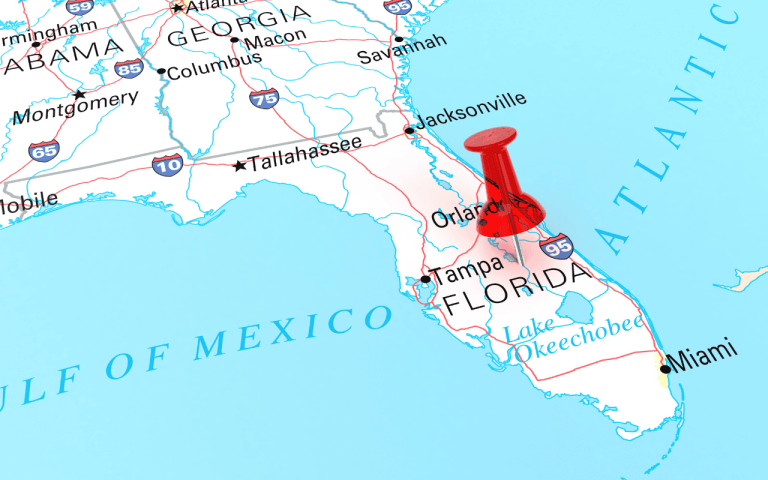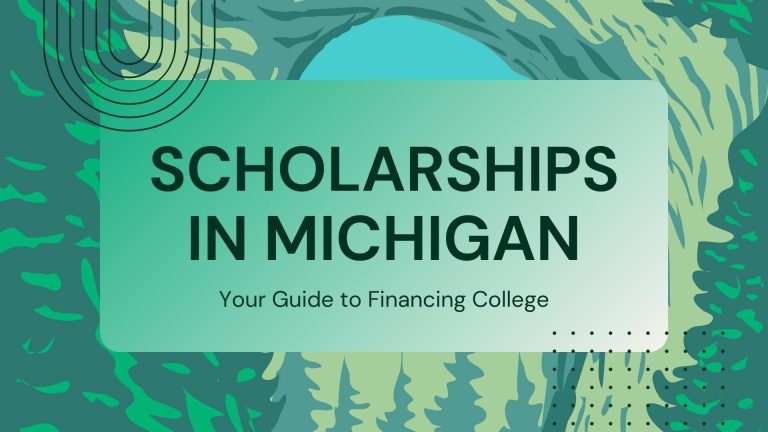Education isn’t a one-size-fits-all journey. Not everyone follows the traditional path of graduating high school at 18, heading straight to college, and entering the workforce by 22.
For millions of adults, life brings different priorities: raising a family, serving in the military, building a career, or overcoming personal obstacles before returning to school. If that sounds like you, you’re in good company.
This guide is here to help you navigate the process, no matter your age, background, or schedule. We’ll cover what kinds of scholarships are available in 2025, how to apply, and how to find programs that recognize the strength and value of your lived experience.
If you’re ready to invest in yourself and your future, read on.
Don’t forget to explore additional scholarship opportunities that you may be eligible for on Scholarship Institute!

10 Scholarships Available for Non-Traditional Students
1. National Career & Technical Scholarship (Horatio Alger Association)
Link: National Career & Technical Scholarship
- Award: $2,500 each (300 awards) plus one $4,000 John Hardin Hudiburg Career & Technical Scholarship
- Eligibility: U.S. citizens under age 35 with a high school diploma (or equivalent by July 1), family income under $65K, and enrollment in a job-leading associate’s, certificate, or diploma program.
- Deadline: Applications open mid-March; rolling selections until July.
2. AGC Education & Research Foundation Scholarships
Link: AGC Education & Research Foundation Scholarships
- Award: Varies (typically annual)
- Eligibility: High school seniors, college, or trade school students pursuing construction-related fields.
- Deadline: Varies by scholarship.
3. Soroptimist Live Your Dream Awards
Link: Soroptimist Live Your Dream Awards
- Award: Up to $16,000 (various levels: club, region, international)
- Eligibility: Women who are primary financial providers for their families, without graduate degrees, enrolled in vocational or undergraduate programs, with dependents and financial need.
- Deadline: Aug 1 – Nov 15 annually
4. Patsy Takemoto Mink Education Foundation Scholarships
Link: Patsy Takemoto Mink Education Foundation Scholarships
- Award: Up to $5,000 each (five awards for 2025)
- Eligibility: Low-income women with minor children pursuing their first degree at an accredited U.S. institution.
- Deadline: 2025–26 cycle closed August 1, 2025; next cycle opens May 2026.
5. College JumpStart Scholarship
Link: College JumpStart Scholarship
- Award: $1,000 (four annual awards)
- Eligibility: High school, college, or adult learners demonstrating perseverance and a love of learning.
- Deadline: Varies by scholarship. Cycle is March – December 2025.
6. Lurleen B. Wallace Community College – Non-Traditional Scholarships
Link: Lurleen B. Wallace Community College – Non-Traditional Scholarships
- Award: Up to $1,500 per semester (depending on enrollment)
- Eligibility: Non-traditional students (21+ or with GED) enrolled at LBWCC with at least a 2.5 GPA. Cannot have other LBW scholarships/waivers.
- Deadline: July 13, 2025 (Fall/Spring awards); Nov 16, 2025 (Spring/Summer awards).
7. Springfield Foundation – Non-Traditional Student Scholarship
Link: Springfield Foundation – Non-Traditional Student Scholarship
- Award: Varies; usable for tuition and course-related expenses.
- Eligibility: Non-traditional students (25+) from Clark County, Ohio, with no prior college experience.
- Deadline: February 7, 2025
8. Dr. Juan Andrade Jr. Scholarship for Young Hispanic Leaders
Link: Dr. Juan Andrade Jr. Scholarship for Young Hispanic Leaders
- Award: $1,000 (4-year students) or $500 (2-year students)
- Eligibility: U.S. citizens of Hispanic/Latino heritage enrolled in college.
- Deadline: November 30, 2025
Want to see if you are eligible for more scholarships? Try Scholarship Institute to easily find and apply to over 200 scholarship opportunities!
How to Apply for Scholarships for Non-Traditional Students
If it’s been a while since you’ve filled out an application, don’t worry, you’re not alone. Many non-traditional students are stepping into unfamiliar territory when it comes to scholarships.
But the good news is: there’s no secret formula, no perfect background required, and definitely no expiration date on learning.
You already bring discipline, perseverance, and real-life experience to the table—qualities that many scholarship committees are looking for. The key is knowing where to look, how to present your story, and how to stay organized throughout the process.
1. Start With the Listings Above
The scholarships listed at the top of this page are curated with non-traditional students in mind. Some are for students over 25, others are for parents returning to school, and many are for those pursuing education while balancing careers or major life changes.
You’ll find details like:
- Eligibility criteria
- Award amounts
- Deadlines
- Submission instructions
- Direct application links
Some programs may focus on specific demographics (e.g., veterans, first-generation students, or single mothers), while others welcome all adult learners.
2. Explore Federal Aid
Federal student aid isn’t just for students entering college after high school. Anybody who meets the basic requirements for aid is eligible to apply by completing a FAFSA form. Federal aid can come in the form of grants, loans, work-study programs, or scholarships. So, don’t forget to explore this option to funding your education.
3. Come Prepared to Apply
Don’t wait until a deadline is looming to start pulling documents together. Many scholarships require materials that can take time to collect, especially if you’ve been out of school for a while.
Common requirements include:
- Personal statement or essay
- Transcripts (from high school, community college, or prior universities)
- Resume or CV
- Letters of recommendation (professional or academic)
- Proof of enrollment or acceptance
- Documentation of financial need (optional for need-based awards)
If you’re unsure about your transcripts or haven’t written an essay in years, don’t stress. Many scholarships are more interested in your story, your goals, and your ability to commit to your education than in traditional academic benchmarks.
4. Highlight Your Journey in Your Essay
This is where non-traditional students can truly shine. Unlike recent high school graduates, you bring a wealth of perspective that can’t be taught in a classroom.
Maybe you’ve spent the last decade raising children, serving in the military, working full time, or caring for a loved one. These are all things that you can discuss in your essay to stand out from other applicants.
Use your essay to tell that story. Scholarship committees want to hear:
- Why you’re returning to school now
- What obstacles you’ve overcome
- How your life experience shapes your academic and career goals
- What impact you hope to make through your education
Be honest, be proud, and don’t feel pressured to sound like a traditional student. You’re not. And that’s exactly why you bring something valuable to the table.
5. No Scholarship is Too Small
It’s tempting to focus only on the largest scholarship amounts, but don’t overlook smaller awards. A $500 scholarship might not cover your entire tuition bill, but it could help pay for textbooks, lab fees, or transportation.
And the best part? These smaller awards often have fewer applicants, especially in the non-traditional category.
Make it a goal to apply to a few scholarships each month. Keep a simple spreadsheet with:
- Scholarship name
- Deadline
- Award amount
- Status (e.g., “Started,” “Submitted,” “Won”)
The more you apply, the better your odds—and the more confident you’ll become with each submission.
Why Scholarships for Non-Traditional Students Matter

College isn’t just for 18-year-olds straight out of high school. More than 30% of today’s college students are over the age of 25, and many of them are balancing education with work, family, and other commitments. Still, the financial aid system isn’t always built with adult learners in mind.
That’s why scholarships for non-traditional students are so important. They help fill the gaps and recognize that higher education should be accessible at every stage of life.
Real-Life Costs, Real-Life Responsibilities
Non-traditional students often face different financial pressures than traditional students. You may be supporting a household, caring for children or aging parents, or returning to school after being laid off.
Every dollar counts—and scholarships can make the difference between starting school and having to put your goals on hold.
Recognition of Experience and Resilience
Many scholarship providers are eager to support students who have demonstrated grit, adaptability, and long-term commitment. These are qualities that non-traditional students embody in spades.
These awards aren’t just about academics; they’re about recognizing real-world experience and the courage it takes to start again.
Equity in Education
Access to education shouldn’t depend on your age, income level, or life circumstances. Scholarships designed for adult learners help promote educational equity by removing financial barriers for those who didn’t have the chance or chose not to pursue college right after high school.
Types of Scholarships for Non-Traditional Students
There’s no single mold for non-traditional students, and the same is true for scholarships.
Here are the most common types of awards available:
Scholarships for Adult Learners
These are specifically open to students 25 and older, or those returning to school after a break. They’re often flexible about enrollment status and may prioritize life experience or personal goals over GPA.
Scholarships for Parents
Many programs are designed to support student-parents who are balancing childcare with coursework. These awards may include extra support for single mothers, fathers, or caregivers.
Scholarships for Veterans and Military Families
If you’ve served in the military—or are a spouse or dependent of someone who has—you may qualify for scholarships that support your educational transition and honor your service.
Career Change Scholarships
Thinking about switching paths? Some scholarships are geared toward mid-career professionals pursuing degrees in high-demand fields like healthcare, education, tech, or public service.
Need-Based Scholarships
These are based on your financial situation rather than academic performance. You may need to provide documentation such as tax returns or a FAFSA submission.
Identity-Based Scholarships
Offered to students who identify as part of an underrepresented group, such as:
- BIPOC students
- LGBTQ+ students
- First-generation college students
- Students with disabilities
- Women returning to male-dominated fields
Program- or Major-Specific Scholarships
These are awarded based on the program you’re pursuing—such as nursing, engineering, early childhood education, or social work.
Part-Time or Online Student Scholarships
If you’re not attending college full-time or are enrolled in an online degree program, there are scholarships available that respect and support that format.
What to Expect When Applying as a Non-Traditional Student
Apply for scholarships can feel like entering a whole new world. The forms, the deadlines, the essay prompts—it’s a lot, especially if it’s been a while since you were last in a classroom.
But you’re not alone, and more importantly, you’re not at a disadvantage. Understanding what to expect upfront can help you move forward with more clarity, less stress, and the confidence to own your place in this process.
You May Qualify for More Than You Think
Even if you’ve been out of school for years or never went to college, many scholarships are still within reach. Don’t count yourself out before checking the criteria.
Your Story Is Your Strength
You don’t need a perfect GPA or a laundry list of extracurriculars. Focus on what sets you apart: your journey, your goals, and your why.
You Might Face Impostor Syndrome
It’s common to feel like you don’t belong, especially in competitive academic spaces. But college scholarships for non-traditional students exist because you do belong. Own your space.
Expect a Learning Curve
The application process might feel new and unfamiliar, but like anything else, you’ll get better with practice. Start small and build momentum.
FAQs About Scholarships for Non-Traditional Students
What qualifies someone as a “non-traditional” student?
While the definition varies, non-traditional students are typically those who:
- Are 25 or older
- Didn’t attend college immediately after high school
- Attend school part-time
- Work full time while enrolled
- Have children or caregiving responsibilities
- Are returning to college after a long break
Do I need to be enrolled full-time to qualify for scholarships?
Not always. Many scholarships are available to part-time students, especially those designed for parents, working professionals, or online learners.
Are there scholarships just for older students?
Yes! Many programs specifically serve students over 25, 30, or even 40. These scholarships often prioritize life experience, motivation, and career goals over academic history.
Can I get scholarships if I already have some college credits?
Absolutely. Whether you’re finishing a degree you started years ago or pursuing a new one entirely, your previous coursework won’t disqualify you from most scholarship programs.
Can I apply for scholarships if I’m attending college online?
Yes! Many scholarships for non-traditional students are open to online learners. In fact, some programs are specifically designed for students enrolled in accredited online or hybrid programs. Just be sure to check the eligibility criteria. Most will state whether distance learners are included.
How do I ask for a letter of recommendation if I’ve been out of school for years?
It’s completely normal to feel unsure about where to turn for recommendations if you’re not currently in school. In this case, consider asking a current or former employer, supervisor, volunteer coordinator, or mentor who can speak to your character, work ethic, and goals. Be clear about what the scholarship is for and why you’re applying.
Can I reuse application materials for different scholarships?
Definitely. While you should always tailor your essay or responses to each scholarship prompt, it’s smart to keep a base version of your personal statement, resume, and other materials on hand. Many non-traditional students reuse and adapt content to save time while applying to multiple programs.
Don’t Delay Your Education Any Longer
There’s no such thing as “too late” when it comes to investing in your future. As a non-traditional student, you bring resilience, perspective, and determination to everything you do. And now, with the right scholarship, you can bring those same qualities into the classroom.
Want to find more funding opportunities? Head to the Scholarship Institute platform to continue your search. With a little organization, persistence, and belief in your journey, college can become a powerful and affordable next chapter.
Our Editorial Team, with a rich background in educational content creation, prioritizes accuracy and quality in every article. We are committed to producing expert content tailored to meet the academic needs of college and high school students, ensuring they receive well-researched and trustworthy information for their educational journey.







